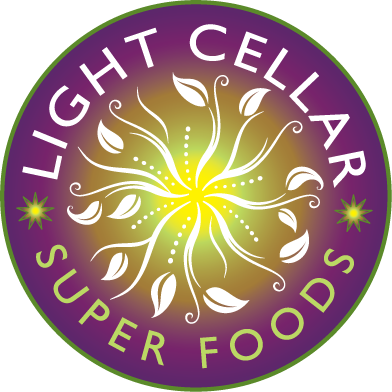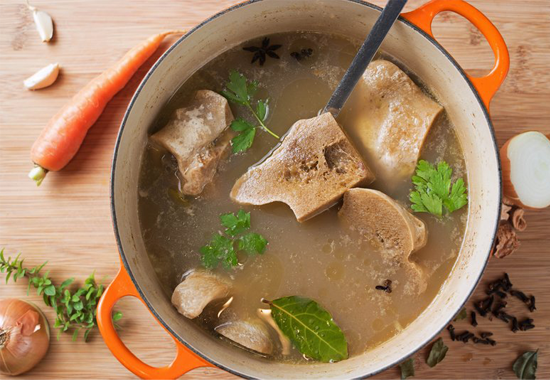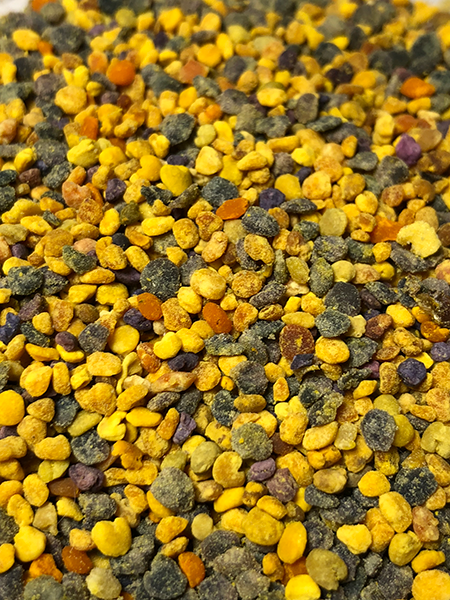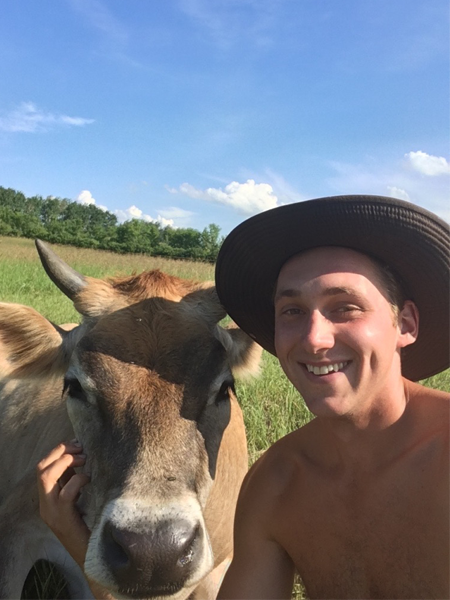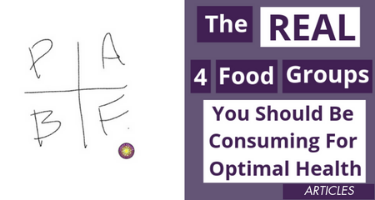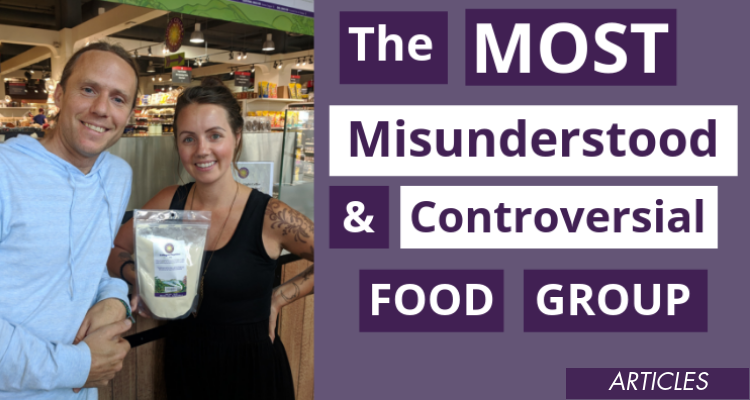
Animals
Without a doubt, this is the most misunderstood and controversial food group.
However, I strongly believe, both from my own personal experience, as well as years of research and observation, that food from the animal kingdom is absolutely essential for optimal human health.
What this doesn’t mean is that you need to eat meat, though for some, it might be a very good choice.
The most essential aspect of this kingdom is to source your animal foods well.
We cannot and should not rely on conventional supermarket animal foods.
We need to know that there is a distinction between chicken and chicken, eggs and eggs, milk and milk.
Source is key.
Even more so than plant foods. Because how an animal is sourced, raised and/or fed, makes all the difference between health and disease.
I was many forms of vegetarian including vegan and raw vegan for more than a decade, and I could argue with anyone how damaging animal foods are to your health and the environment.
But what I didn’t realize, is that this is only a half-truth.
The real truth and what matters more, is the system the food comes from.
As an example, beef or milk from an industrial factory farm where the cows are mistreated and fed an inappropriate diet of grain, is among other health and environmental problems, full of inflammatory omega 6 oils.
Yet, beef or milk from pastured grass-fed cows is a sustainable choice, full of healthy anti-inflammatory Omega 3 oils and a healthy kind of Omega 6 oil as CLA.
Again, this example is not meant to suggest you need to consume milk or beef, but it is important to make a distinction of source as we talk about this food group.
The spectrum of foods you can and should source from this kingdom go far above and beyond just meat…
A partial list all foods and their sources from this kingdom are:
Meat, milk and milk products, eggs, organs, bones, marrow, and blood from mammals, birds, reptiles, amphibians, fish, and of course the largest component of the kingdom arthropods: like insects, crustaceans, arachnids, centipedes, and millipedes.
I’m not suggesting we eat all those, but if we just look at insects alone, there are over 2000 very nutritious, sustainable and edible species of insects including the bee and its honey, pollen and other hive products.
Though it is often argued, there are specific nutrients in both quality and quantity that cannot be as easily found or assimilated from any other food group other than the animal kingdom.
These vital nutrients though one can supplement are best found in pre-converted, digestible forms from well-sourced animal foods.
They are:
- Protein: including all essential as well as non-essential amino acids such as creatine, carnosine and tyrosine.
- Fats & Oils: Saturated fats and essential omega 3 and 6 fatty acids like EPA, DHA and CLA.
- Minerals: like Iron, Calcium & Zinc.
- Vitamins: Including vitamin B12 as well as the very important forms of fat-soluble vitamins such as A, D, and K2. It is these forms of vitamins which help put minerals in the bones and are lacking and difficult to absorb in proper quantities in a plant-only diet.
Above is only a partial list, as there are obviously far more nutrients available within animal foods, but I specifically highlighted a few that in my opinion are key and more easily obtained through animal foods than other sources.
Many in that list have been the subject of controversy and debate.
Can you get protein and amino acids from plants? Yes, but most people can’t maintain their weight, let alone build strength and muscle as easily.
So before you start sending me pictures of ripped vegan bodybuilders with massive muscles, because whether we can accept that for a short period of time these folks have achieved their results through just plants alone, we have to acknowledge they are the exceptions.
I have known so many well-meaning, highly motivated and educated individuals who have wholeheartedly taken on vegetarianism and have not thrived. Their health only returned when animal foods of some kind were added back in because it truly delivered the nutrients they were missing and not able to obtain sufficiently from plants.
I truly believe that if we as humans do not eat foods from this kingdom we will not sustain health. Period.
We are omnivores.
We require nutritional input from the animal kingdom of one sort or another from start to end. Milk is our first and most essential food as mammals – we are not vegans.
There has never been a vegan culture anywhere in the world that has successfully bred vegan after vegan for generations.
Yes, there may be select individuals who choose veganism for certain periods of time in their own life, but I have yet to meet many truly healthy long-term vegans, and none that are 2nd generation.
(Above Photo is Takota Coen on his farm)
In general, I see the main benefit of animal foods as both building & grounding.
They are far more anabolic than catabolic. Just as plants are more catabolic than anabolic.
Knowing this, we need to be careful to not consume too many animal foods and balance their consumption with the other kingdoms of plants and bacteria which will not only help us digest them, but cleanse away the by-products of their metabolism.
And potentially most important of all, we need to consume animals as a whole food.
Isolation of certain components of animals can be as imbalancing as it is in plants.
For example, my friend and chef Frank Giglio writes in one of his blogs at cheffrankgiglio.com
“Eating lean muscle meats to the complete or near complete exclusion of organs, skin, cartilage, marrow, etc., supplies the diet with an unhealthy balance of amino acids.”
One in particular, methionine, when received in large amounts (relative to other amino acids, like glycine), can promote IGF-1, which in turn can support the growth of cancerous cells in unhealthy individuals.
Supplementation with glycine (or simply eating snout to tail) balances these amino acids out and does not promote this process.
Omnivory that eats solely (or mainly) lean muscle meats is purported to promote cancer over a strict vegetarian diet, however, omnivory that fully utilizes the animal (as in traditional and hunter-gatherer diets) is known to produce almost no cancer, even in old age.”
Let me conclude with what may or may not be obvious, but needs acknowledged.
One needs to have gratitude and reverence for all food, especially that which gave its life. In traditional societies there is an adult-wisdom in knowing that life came from life. And that in order for you to live… something else, or shall I say, someone else, must die – be it plant, animal, bacteria or fungi.
If you want to explore this further, I recorded a short talk I gave on the topic a couple years ago:
https://www.youtube.com/watch?v=4M2oXU-3FPs
So give thanks, and reflect on what kind of life your food lived, and honour it and yourself by choosing the best source you can.
Eating from the animal kingdom will literally help put meat on your bones, from it you can build muscle, tissue, bones as well as support your brain, nervous system and hormonal system.
Choose wisely, eat in balance and give thanks for the life you have taken.
Animal foods are a deep and complex topic, something that no single blog post could cover. If you are interested in learning more and hearing about my journey of being a very passionate vegetarian for more than a decade to beginning to realize the importance of animal foods you should check out this interview here:
https://blog.lightcellar.ca/all-about-super-foods-optimal-human-health-guest-video-interview/
I was interviewed by Takota Coen who is a smart, young farmer in Alberta who has a passion for nutrition and producing high quality health-enhancing, well-raised, animal foods.
He and I hit it off and had a great in-depth conversation which has led to the honour of hosting him here at Light Cellar for a 1 day intensive
On Sunday January 13th he will lead us through 3 different workshops focusing on what he calls your Great Grandmothers Superfoods: Organs, Bones & Fat.
Not only will you learn about the nutrient density of these ‘forgotten superfoods’ but he’ll be sharing with you how best to use and prepare them.
I know that I wasn’t raised eating them, and so after all my years as a vegetarian I really lack the culinary skills to work with these ingredients, especially the organs, and to make them taste good.
I’ll be there in the class and hopefully you can join us for this truly valuable and hands-on workshop.
Details and registration are here: https://lightcellar.ca/products/great-granmas-superfoods-organs-bones-fat-january-13
In the next post, you will learn about the food group of Fungi. A kingdom that has been used by humans as both food and medicine for millennia.
Stay tuned.
Malcolm “Omnivore” Saunders
Please leave your comments down below ⬇️⬇️⬇️

Malcolm Saunders
CEO
Creative and Visionary of Light Cellar Superfoods.